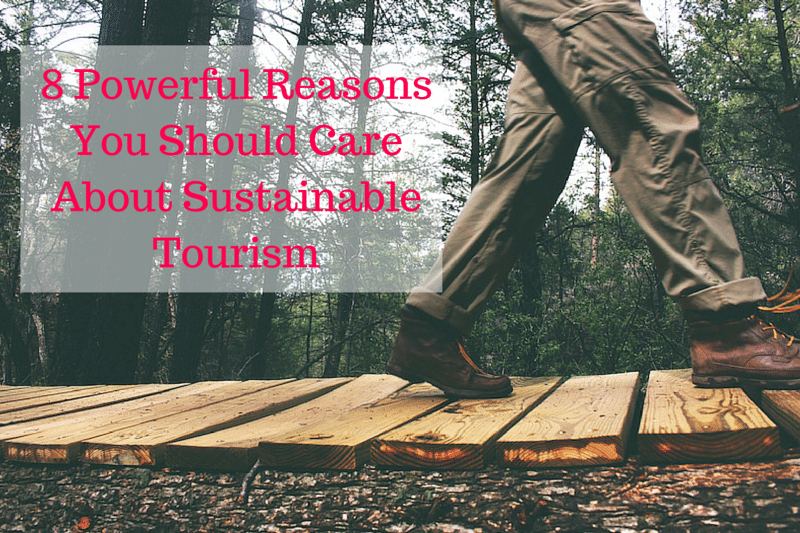
By Beth Winchester of Visit.org
As we approach the beginning of summer, many of us will begin to plan our next vacation.
Will it be to a seaside town off the coast of Italy? Perhaps a trek through the tropical terrain of South America?
Or, maybe we will just take a dip into the ocean nearest us, and take a moment to relish the sunshine after months of cold rain.
No matter where we may go, we should remember we have the ability to participate in sustainable tourism.
By the way, if you love traveling sustainably, we’ve created a fun meaningful travel personality quiz to help you discover your perfect ethical trip experience.
What Is Sustainable Tourism?
Sustainable tourism is, in a nutshell, the concept of visiting a place as a tourist and trying to only make a positive impact on that location’s environment, society and economy.
That largely means supporting locally managed businesses and participating in activities that do not harm the environment or exploit local culture.
Benefits Of Sustainable Tourism
You may be wondering why you should care.
I mean, it’s obvious why you should care; but, for in terms of concrete benefits, there are many. Some include:
1. It benefits the local community
Offering not just employment to local residents but through non-profits, when you explore as a sustainable tourist by frequently locally owned and operated businesses your money goes directly back into the community.
This means that your business as a tourist brings in profits that will help the local community stay profitable long after you have left.
2. It helps to conserve precious natural resources
Earth’s many unique ecosystems are made the way they are for specific reasons, and they are not renewable.
Any chance we have to avoid damaging it, we should take.

You can take part in conservationist tourist activities by first avoiding support of any programs that hurt the land or animals; for instance, the majority of zoos and any landscaped parks or recreation areas that have torn down natural resources in order to find their space.
There are tours and parks that enable the original land to be preserved and enjoyed, so you should look for those.
Avoid attractions that tear down natural resources to build their space. Here's why. #travelgood Click To Tweet3. It gives tourists a more honest look into the local area
By supporting locally-run tour guides and businesses, what you learn from them will be the truth about their culture and environment, from people who live there.
You won’t be fed the traditional scripted tourist-friendly information, but rather will get a first-hand glimpse into life as a local and learn to love the community for what it is.
Some places to look for these types of tours and experiences include Visit.org (the author of this post and a social impact business), NYC Photo Journeys (Epicure & Culture’s New York-based tour company), Grassroots Volunteering (volunteering) and Omprakash (volunteering), to name a few.
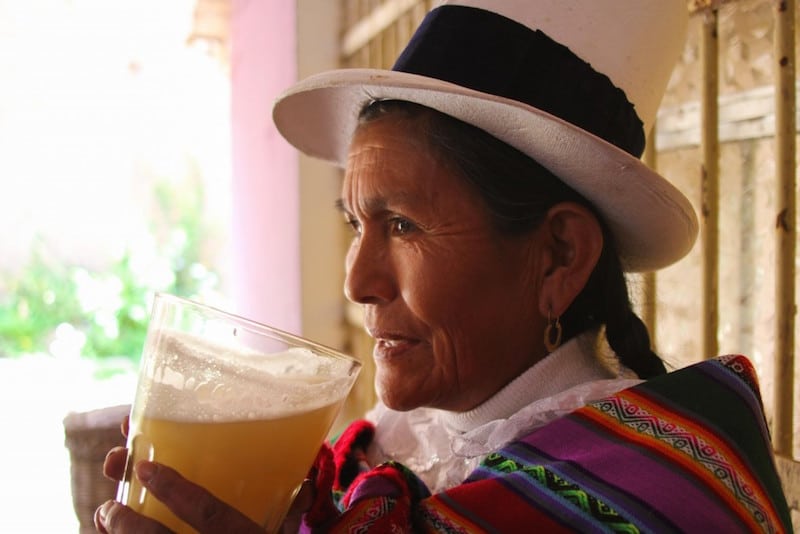
4. Sustainable Tourism isn’t just about creating better places to visit
It’s about creating better places to live.
Traditional tourist-heavy areas rely on tourist money pouring into their hospitality and services to keep their local economy afloat.
There are two possibilities as to how that scenario plays out.
- The first option: Heavy tourist traffic — often called “overtourism” — will deplete the natural beauty and culture of the area, leaving a ghost of the original place for locals to live in.
- The second option: The tourism industry helps to maintain the natural land and culture of the area, while also employing and empowering locals who get to live in their community year-round without having to change it all for tourists.
Sustainable tourism practices help ensure that the second scenario is the one we find ourselves in.
An easy way to support local residents is by patronizing independent hostels, homestays or AirBnB locations.
Hostels are often run by locals, and don’t take up as much real estate as hotel chains do. AirBnB — a system in which people rent out a part or all of their house or apartment for travelers — is definitely run by locals, and is often a way for individuals to supplement their income through the influx of tourists.
And, by the way, click this link if you’ve never used Airbnb and you can save up to $40 off on your first booking!
Both of these options are often cheaper than hotels as well.
Always use good judgement when choosing a place to stay, but take these options into consideration rather than assume you should stay at another big brand chain.
One way to support #local residents is by booking independent #hostels or #AirBnB. Here's why. Click To Tweet5. It can help avoid the displacement and resettlement of local communities
This is unfortunately often a consequence of tourism coming to a location previously untouched by major businesses.
For instance, in the past when a new beach town is “discovered” by tourists — typically from the First World — major hotel and food companies come in to benefit from the influx of potential customers.
They don’t tend to care about the survival of local life that was there before.
Sustainable tourism does, and it advocates for finding the best combination of exciting and profitable tourism and the continued existence of indigenous communities.
You can make efforts to be sustainable in this way by not supporting programs that exploit the local culture for entertainment or tourist photo ops.
Do some research to discover if the program or workshop you’re signing up for is being run by genuine residents or members of a certain culture or subculture, and not a larger outside corporation.
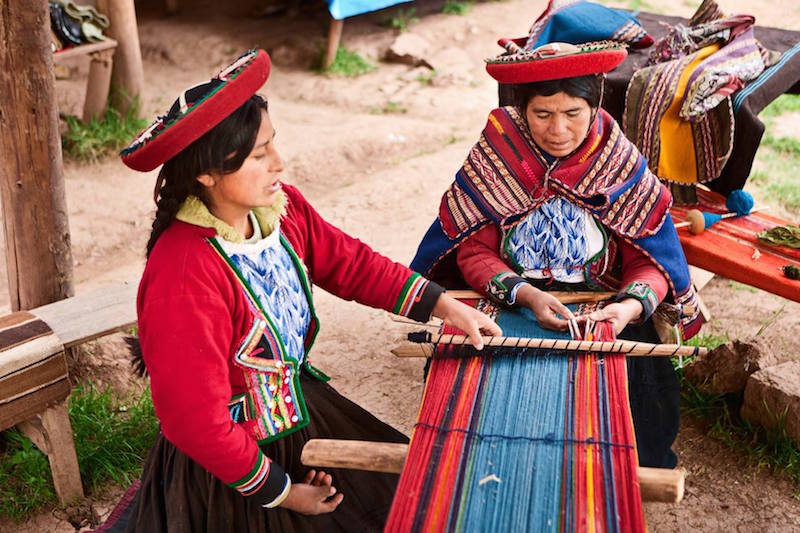
6. It prepares us for the future
The traditional tourism industry, with its very large eco-footprint — supporting heavy vehicle traffic, traveling and construction of large hotels — is not sustainable.
Travel will become more expensive, and rarer – especially the experience of going to unique lands and cultural areas.
Every major tourist destination may start to conform and look the same, contorting themselves to offer the same services and experiences.
But every community isn’t supposed to be the same, and not every experience should be either.
Sustainable tourism ensures that one-of-a-kind communities retain that which makes them special.
A simple way to be more environmentally conscious while traveling is to use bikes as well as our own feet as transportation.
At the very least, use them for short distances when possible.
This helps cut down on the air pollution in the area, which is often magnified by the throngs of tourists.
For booking flights, Glooby is an eco-focused search engine that calculates factors like fuel consumption and flight distances between airports to show fliers a detailed eco-rating when they search.
Not every #community is the same, and not every #travel experience should be, either. #golocal Click To Tweet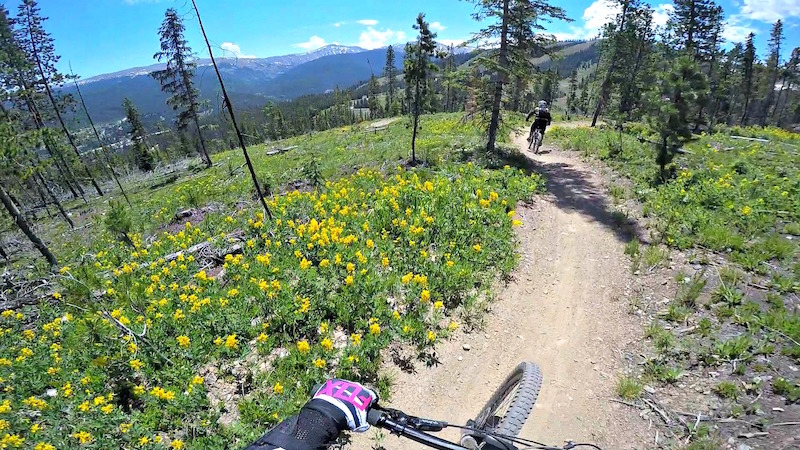
7. It is our duty to follow the “campsite rule”
Leave the person or places you encounter in at least the same state, if not a better one, than it was in before you.
Tourism is supposed to encourage and make feasible the experience of visiting the rest of the world and stepping into someone else’s shoes for a bit.
It isn’t supposed to grind the small communities down to a pulp, in favor of large tourism hubs.
8. Supporting sustainable tourism is a responsible thing to do
You lose nothing by taking part in it, and you get a guarantee that the beautiful forest, mountain town or pristine beach you spent a few delightful days in will still be thriving far into your future.
And when you return in the future it will be there waiting for you.
Do you have any sustainable tourism advice to add? Please share in the comments below!
About Visit.org
This post was written by Beth Winchester of Visit.org, an online marketplace for tours and activities that benefit communities. Visitors add immersive local experiences to their existing travel itineraries. Social organizations raise awareness and revenue for their causes.
Recommended:
A Sense Of Belonging: The Media’s Impact On Refugees [Blog Advice]
Clever Travel Companion Pickpocket-Proof Garments [Travel Safety]
Vagabonding: An Uncommon Guide to the Art of Long-Term World Travel by Rolf Potts [Great Reads]
Enjoyed this post? Pin it for later!
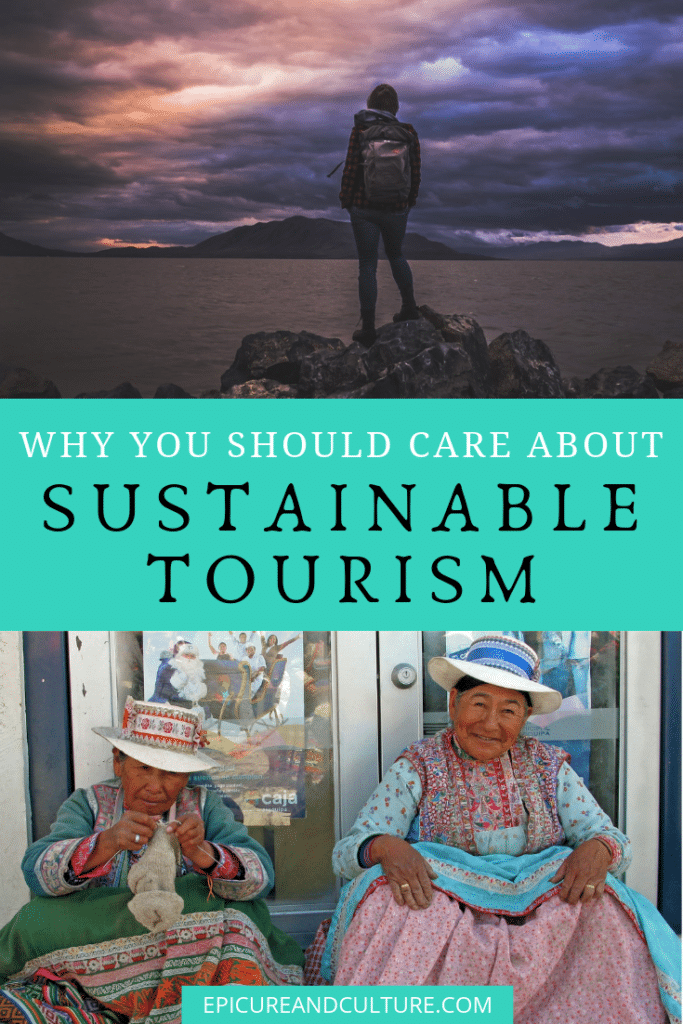
Jessica Festa
Latest posts by Jessica Festa (see all)
- A Culturally-Immersive Adventure In Mongolia’s Altai Mountains - Jul 8, 2023
- This Recipe Sharing Platform Supports Women In The Culinary Industry (Labneh Recipe Included!) - Nov 5, 2020
- Hiking The Mohare Danda Community Eco-Trek In Nepal - Jun 3, 2020
- 6 Important Questions For Choosing A Responsible Yoga Retreat - May 18, 2020
- How To Create & Grow A Profitable Blogging Business (Ethically) - Jan 18, 2020






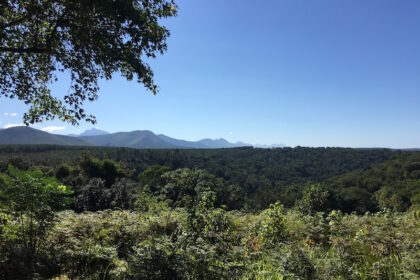
You make some truly excellent points in this post. Sustainable tourism has a huge cluster of benefits, as you’ve mentioned here. Supporting the smaller, locally owned businesses and attractions will definitely help you in your mission to leave a positive imprint on that particular area. Awesome post! Thank you so much for sharing!
Thanks Beth, great post! I didn’t know Glooby, it sounds cool 🙂
And of course, GOOOOO visit.org and the social impact travel movement !
An excellent arcticle to read about!
Great post!
Nice blog!! I really liked reading the blog. Extremely informative and helpful information about sustainable tourism care. Keep sharing more good content.